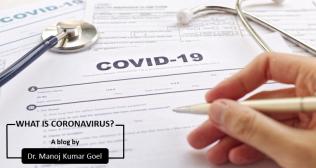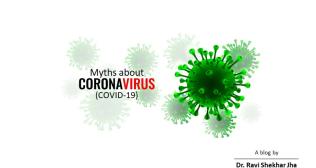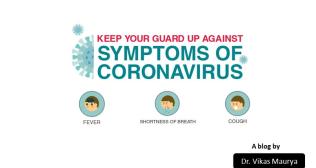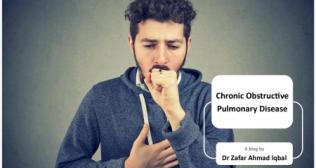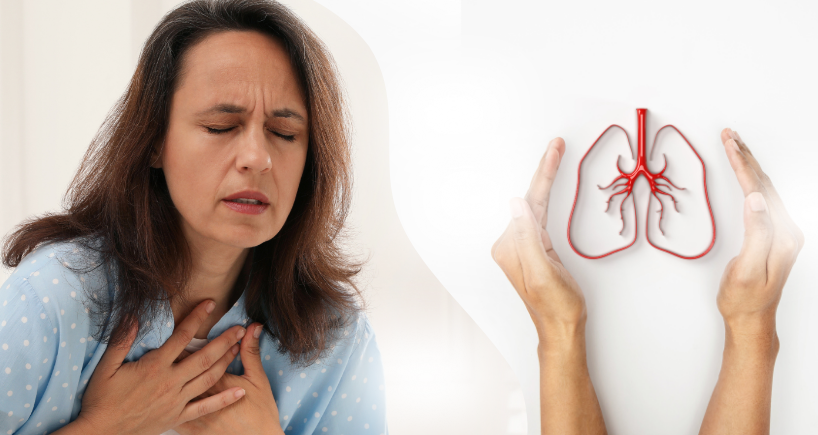
Pulmonology
Understanding Chronic Obstructive Pulmonary Disease (COPD): Symptoms, Diagnosis, and Treatment
Dr. Prashant Saxena Sep 18, 2024
Chronic Obstructive Pulmonary Disease (COPD) is a progressive lung disease that primarily affects breathing, making it increasingly difficult for individuals to perform daily activities. Characterized by persistent respiratory symptoms and airflow limitation, COPD encompasses two main conditions: chronic bronchitis and emphysema. Understanding COPD is essential for effective management, early diagnosis, and treatment.
Symptoms of COPD
The symptoms of COPD often develop slowly and may not be noticeable in the early stages. Common symptoms include:
- Chronic Cough: A persistent cough that may produce mucus is often one of the first signs. This cough is typically worse in the mornings and may be mistaken for a chronic cold or bronchitis.
- Shortness of Breath: Individuals with COPD often experience breathlessness, especially during physical activities. As the disease progresses, this shortness of breath can occur even at rest.
- Wheezing: A whistling or squeaky sound when breathing, particularly during exhalation, can be a sign of airflow obstruction.
- Chest Tightness: Many patients report a feeling of tightness in the chest, which can be uncomfortable and distressing.
- Frequent Respiratory Infections: People with COPD are more susceptible to colds, flu, and other respiratory infections, leading to exacerbations of symptoms.
- Fatigue: Chronic fatigue and decreased energy levels are common due to the body’s increased effort to breathe and reduced oxygen levels.
Diagnosis of COPD
Diagnosing COPD involves a comprehensive assessment, including:
- Medical History: A thorough review of the patient’s medical history, including symptoms, smoking history, exposure to pollutants, and family history of lung disease.
- Physical Examination: A physical exam helps the healthcare provider assess breathing sounds, signs of respiratory distress, and overall health.
- Spirometry: This is a key diagnostic test that measures lung function by assessing the amount of air a person can exhale and how quickly. A reduced airflow is indicative of COPD.
- Imaging Tests: Chest X-rays or CT scans may be performed to visualize the lungs and identify any structural changes or complications associated with COPD.
- Blood Tests: Arterial blood gas tests can measure oxygen and carbon dioxide levels in the blood, helping to determine the severity of the disease.
Treatment of COPD
While there is currently no cure for COPD, various treatments can help manage symptoms, improve quality of life, and slow disease progression. Treatment options include:
- Medications:
Bronchodilators: These medications help relax the muscles around the airways, making it easier to breathe. They can be short-acting for immediate relief or long-acting for ongoing control.
Corticosteroids: Inhaled corticosteroids can reduce inflammation in the airways, while oral steroids may be used during exacerbations.
Pulmonary Rehabilitation: This is a structured program that combines exercise, education, and support to help individuals manage their condition, improve physical fitness, and enhance daily functioning.
Oxygen Therapy: For individuals with low oxygen levels, supplemental oxygen can help improve oxygen saturation and overall well-being.
Surgery: In severe cases, surgical options such as lung volume reduction surgery or lung transplants may be considered.
Lifestyle Changes: Quitting smoking is the most crucial step in managing COPD. Additionally, maintaining a healthy diet, staying physically active, and avoiding respiratory irritants can significantly improve symptoms.
Categories
Clear allMeet the doctor
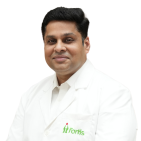
Dr. Prashant Saxena
SENIOR DIRECTOR & UNIT HEAD - PULMONOLOGY & SLEEP MEDICINE | Fortis Gurgaon
- Pulmonology | Pulmonology | Sleep Medicine | Pulmonology and Critical care
-
22 Years
-
1800







